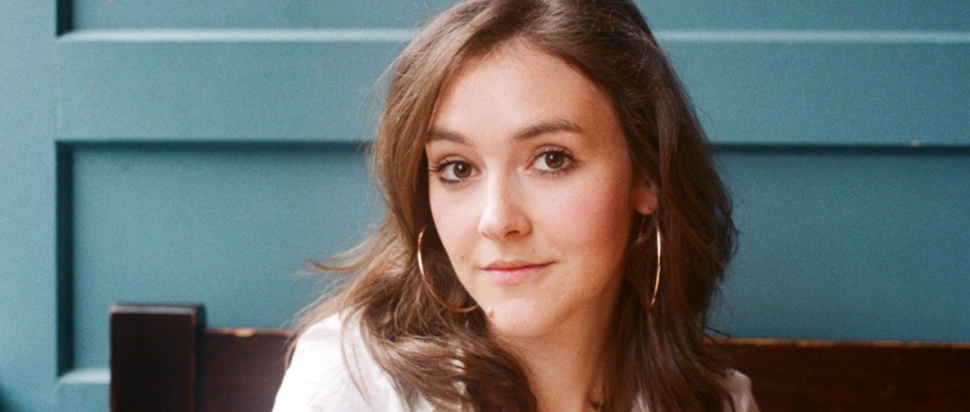Julia Armfield on Our Wives Under the Sea
We meet Julia Armfield to learn about her debut novel, the queer deep-sea horror Our Wives Under the Sea
When Julia Armfield saw Roald Dahl’s The Witches as a child, she was, she says, “disgusted and thrilled” by the moment where a little boy is turned into a mouse. “It was so gross how they did it,” she laughs. “It's almost puppet-y, you can't quite tell whether it's special effects.” A similar odd-couple response comes up when she mentions Titane, Julia Ducournau’s mechanophilic body horror which won big at Cannes last year. “Everything that is so horrific and violent about that movie,” Armfield says, “is also kind of tender and liberating.”
Disgusting and thrilling, horrific and tender: this is horror as Armfield sees it – and writes it. Her first book Salt Slow was a collection of uncanny, bloody, haunting short stories where girls turn to wolves and shadowed ghosts of sleep leave an entire city insomniac. With her debut novel, Our Wives Under the Sea, the story of a deep-sea research expedition gone horribly and mysteriously wrong is similarly steeped in this strange enmeshing of fear and yearning. Marine biologist Leah returns to her wife Miri eerily altered, unable to find purchase either on dry land or in their once-swelling romance. Flitting between Leah’s travelogue of the doomed voyage and Miri’s grief-tinged present-day narrative, reading Armfield’s book feels like the first gasp of breaking surface in salted water, half-drowned and heavy-limbed.
It’s an oddly bodily reading experience but this is nothing less than apropos; in Armfield’s fiction, the body is a crucible of anxiety and possibility, pregnant with the potential of violent transformation. “The horror that has always worked for me is bodily,” she explains, “because I think the body is the baffle between us and the world.” Inspired heavily by film rather than literature – Armfield fluently reels off The Texas Chain Saw Massacre, Suspiria, and The Exorcist as familiar touchstones – Our Wives Under the Sea was initially a short story idea but really began as an image in Armfield’s head, of a woman’s body dissolving.
“There was the sense of her in the bath, but melting,” she says. “So much horror that is successful to me usually turns on transformation or possession or mutilation.” In her novel, this bodily precarity is scored through with ecological instability, the boundaries between human and nonhuman made porous as Leah increasingly slips through Miri’s grasp. The easy fragility of these bodies that we believe to be so defined, so realised become a sign of our insignificance within wilder, indifferent worlds. “I think,” Leah says blankly midway through the novel, “that there was too much water. I think we let it get in.”
“We think of the place that we live as the real world, but actually far more creatures live under the sea,” Armfield says. “The guy who is in charge of [Leah’s expedition] was always intended to be Elon Musk-y: that idea of doing something just because they can and the people and places they go to are incidental. But why do they need to be there? Why are they necessarily the good guys just because they happen to be human? I'm interested in the idea of us as entirely incidental.”
For Armfield, there is release as well as fear to be found in the unbounded nature of this decentring and transformation, in the radical possibilities of flouting categorisation. Her fiction is often a reconsideration of the monstrous, a realisation that the horrific is very often the unveiling of a realer self. “I think there are often queer elements to that,” Armfield adds. “Claiming what is considered monstrous and that actually being liberating.”
This queerness, of course, winds its way throughout her novel, trickling and soaking into every available crevice and pore. Leah and Miri’s love story – told through fragmented flashbacks and aching reminiscences as Leah’s ship sinks beneath the ocean and Miri witnesses her subsequent deterioration – is deliriously romantic because it feels so utterly, tangibly everyday, a longed-for normal in the midst of haunting change. Leah and Miri duck into cinemas, eat dinners lazily on the floor and make out in bars. Miri’s hunger for the return of this natural intimacy becomes the novel’s anchor, the strong beat of its battered, tender heart.
“I think you can read salt slow in retrospect as a coming out book, and this is the next thing,” Armfield says. “It's about the dailiness of living in a world in which you're not necessarily the norm, but have carved out something resembling normality. And that was important in the very specific ways that you have to approach difficulty and grief and trauma. I’ve had a lot of people say to me: ‘Oh, it's really universal’, which is lovely.” Armfield laughs, “But it is also about lesbians.”
It is, ultimately, this specificity that makes Our Wives Under the Sea so dizzying: the vulnerability of love when it is rendered invisible, the out-of-your-mind terror of this vulnerability in the face of disinterest. This is a love – and a world – that pulls you under.
Our Wives Under the Sea is released via Picador, 3 Mar, £16.99
Julie Armfield introduces the book at Portobello Bookshop, Edinburgh (with Kirsty Logan) on 15 Mar, and Mount Florida Books, Glasgow (with Heather Parry) on 16 Mar
